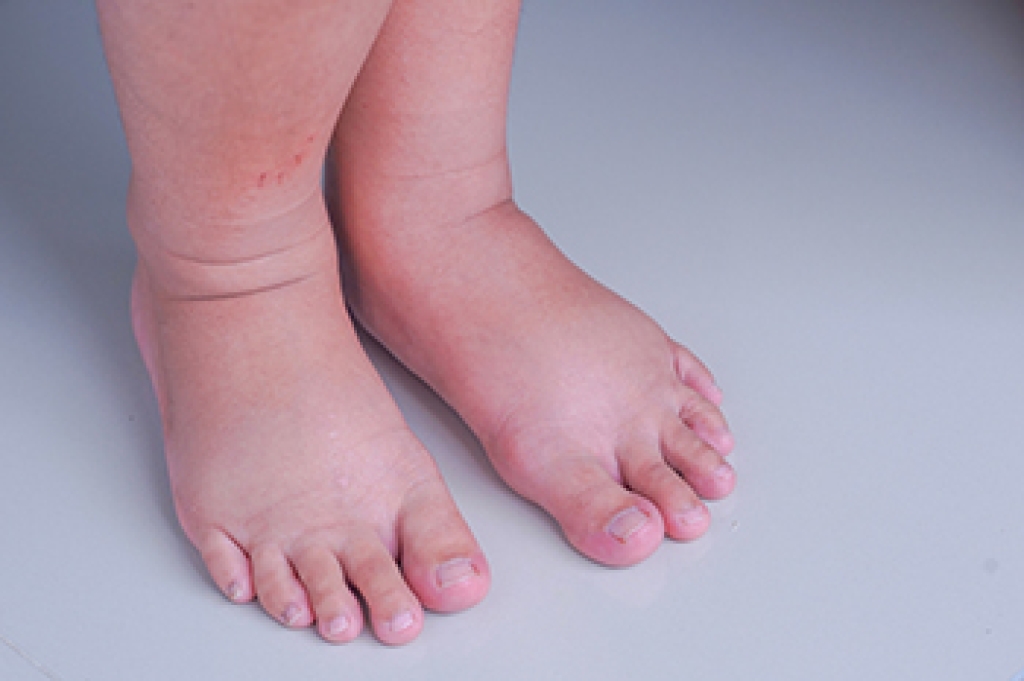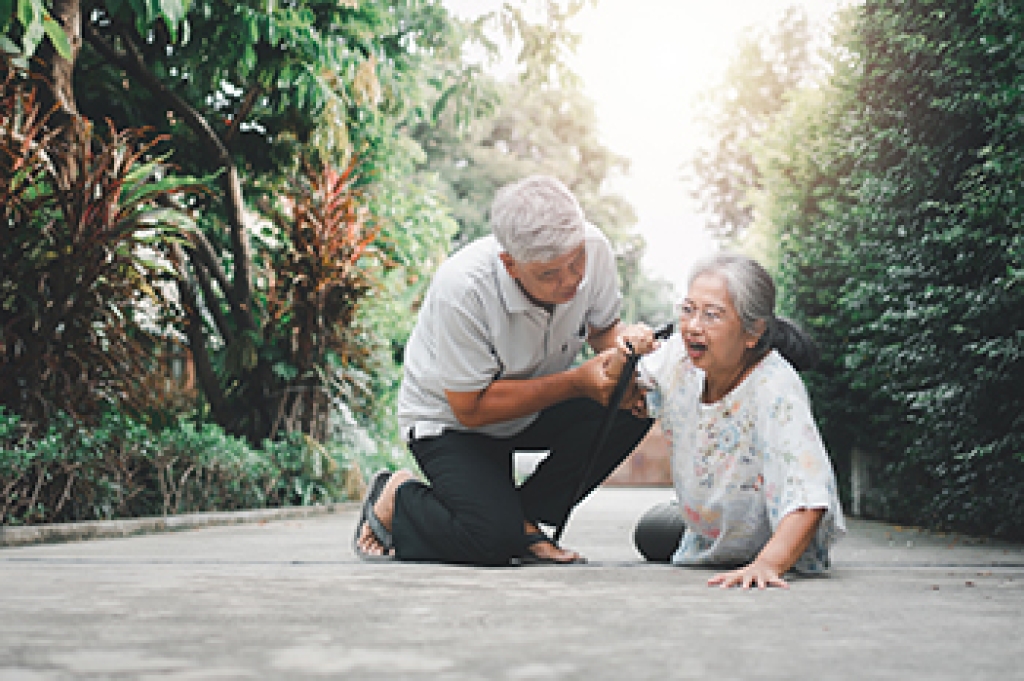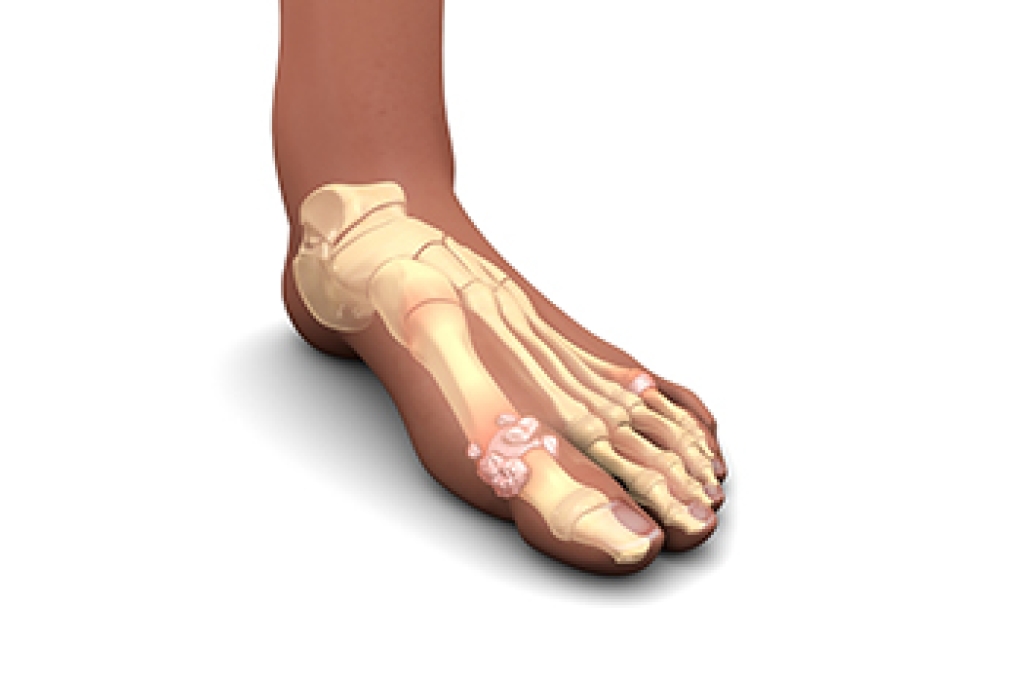
There are various reasons why people may experience swollen feet. Having high blood pressure is a common reason that feet can swell, and limiting salt intake and drinking plenty of water may help to reduce this. Research has shown that many women who are premenopausal develop swollen feet, possibly as a result of their body preparing to start the next phase of their life. Existing medical conditions may lead to having swollen feet, including diabetes, poor circulation, or heart disease. Integrating a gentle exercise and stretching routine may help to control swollen feet, in addition to losing extra weight, if applicable. People who stand for long periods of time during their work day may have swollen feet, and it can be helpful to wear shoes that fit correctly. The arthritic condition that is known as gout may cause the feet to swell, and relief may be found when eating habits are changed. If you have swollen feet, it is suggested that you consult with a podiatrist who can determine the cause and offer you correct treatment solutions.
Swollen feet can be a sign of an underlying condition. If you have any concerns, contact Andrew Katz, DPM of Allcare Foothealth Center. Our doctor can provide the care you need to keep you pain-free and on your feet.
Swollen feet are a common ailment among pregnant women and people who stand or sit for extended periods. Aging may increase the possibility of swollen feet and patients who are obese often notice when their feet are swelling too. There may be medical reasons why swollen feet occur:
- Phlebitis - A condition that causes the veins to become inflamed and can also cause leg pain.
- Liver disease - This may lead to low blood levels of albumin which is a protein. This can cause fluid in the blood to pass into the tissues and several areas of the body can become swollen.
- Heart failure - When the heart doesn’t pump properly the blood that is normally pumped back to the heart can pool in the veins of the legs causing swollen feet.
- Kidney disease - One of the main functions of the kidneys is releasing excess fluid in the body. This type of condition can make it difficult for the kidneys to function properly, and as a result the feet may become swollen.
- Deep-vein thrombosis (DVT)- This is a serious condition where blood clots form in the veins of the legs. They can block the return of blood from the legs to the heart which may cause the feet to swell. It is important to be treated by a podiatrist if this condition is present.
Swollen feet can also be caused by bone and tendon conditions, including fractures, arthritis, and tendinitis. Additionally, there may be skin and toenail conditions and an infection may cause the feet to swell. Patients who take medicine to treat high blood pressure may be prone to getting swollen feet.
Many patients elevate their feet to help relieve the swelling and this is generally a temporary remedy. When a podiatrist is consulted the reason behind the swelling can be uncovered and subsequently treated.
If you have any questions please contact our office located in Palmdale, CA . We offer the newest diagnostic and treatment technologies for all your foot and ankle needs.




